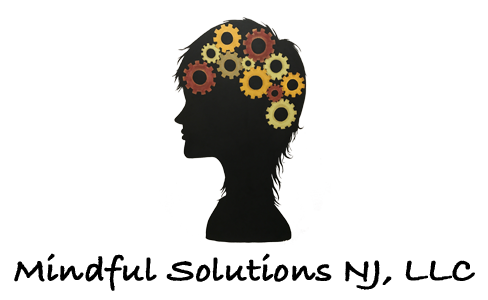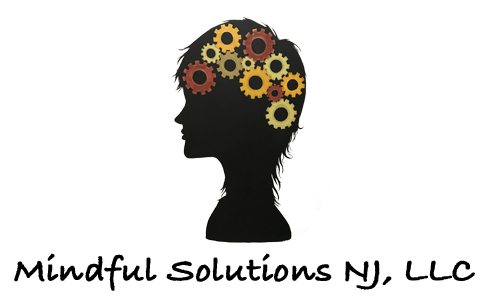Follow Us x
What We Do
Every day you have a choice to be your highest and best self. Our goal as psychotherapists is to help you discover your true 'authentic' self and encourage you to rely upon your own inner wisdom, strength, and resilience to overcome the challenges you face. We incorporate an integrated and relational approach to psychotherapy that addresses the spiritual, mental, emotional and physical levels of healing so you can experience a deeper connection to others and yourself. We tailor sessions to meet client's unique needs and life experiences. We utilize treatment strategies from various modalities including EMDR.
Our expertise is in fostering self-awareness, effective problem solving, development of positive coping strategies, & learning techniques that improve communication skills and daily functioning. We concentrate on solutions for present issues with insight into how past events, upbringing & relationships may still be influencing current thoughts, feelings & behaviors.
Our style is active, nurturing and collaborative. Our approach encourages identifying/understanding barriers to goals, so you make better choices. Our vision is to support you in coping with everyday challenges, while celebrating your true authentic self. Together we will walk you through the painful places to get to the other side where you will thrive and live with passion.
Therapy
EMDR (Eye Movement Desensitization and Reprocessing) is a psychotherapy approach developed by Dr. Francine Shapiro to help people heal from trauma or adversities such as issues of abuse, bullying, domestic violence, grief/loss, attachment wounds, abandonment, PTSD, and many other complicated life issues. EMDR therapy is now validated as an evidence-based approach and included in SAMHSA (the Substance Abuse and Mental Health Services Administration) and the National Registry of Evidence-based Programs and Practices. In addition, EMDR therapy has been validated by over 20 randomized controlled clinical trialsEMDR therapy integrates elements of many traditional psychological orientations and is based on the adaptive information processing model (AIP). The AIP model hypothesizes that there is an inherent information processing system in the brain that gets blocked when traumatic or adverse events occur, causing these events to get locked in the brain with the original picture, sounds, thoughts, feelings and body sensations. Whenever a reminder of the traumatic or adverse event comes up, those pictures, thoughts, feelings, and sensations can continue to be triggered. According to Dr. Shapiro, many emotional problems and disorders are manifestations of these unprocessed trauma memories that are stored in the brain. EMDR therapy works on helping the brain reprocess these traumatic memories, and as a result alleviating the emotional and psychological disorders.
EMDR therapy has been used with children and adolescents with a wide variety of emotional and psychological problems including PTSD, anxiety, phobias, depression, attachment disorders etc. The California Evidence-Based Clearinghouse for Child Welfare has now accepted EMDR therapy as an evidence-based approach for children.
For more information on EMDR, visit EMDR International Association
Ketamine-Assisted Psychotherapy (KAP) 101
We offer a therapeutic modality called Ketamine-Assisted Psychotherapy (KAP) in partnership with a prescriber. Ketamine-Assisted Psychotherapy (KAP) is a holistic modality in which ketamine is used as a complement to psychotherapy to help eligible patients experience more frequent breakthroughs and sustained improvement in symptoms. We take on the psychotherapy portion of the experience, while our medical team partner supports you on all medical aspects. This includes determining eligibility, developing a custom treatment plan, prescribing the medicine and monitoring outcomes. Below is more information about KAP to help you navigate if it may be a good fit for you.
What is Ketamine?
- Ketamine is a legal, safe and effective medicine used to treat a variety of mental health conditions, including depression, anxiety and PTSD. Ketamine has rapidly-acting antidepressant and mood-enhancing effects, which can begin to take effect within 1-2 hrs. after treatment and last for up to 2 weeks. It works by blocking the brain's NMDA receptors as well as by stimulating AMPA receptors, which are thought to help form new synaptic connections and boost neural circuits that regulate stress and mood. Ketamine has also been shown to enhance overall neuroplasticity for lasting symptom improvement.
- Ketamine can be administered in a variety of ways, including IV infusion, intramuscular injection, via nasal spray and using sublingual lozenges. In my work with Journey Clinical we only use the sublingual lozenge form.
How Does Ketamine Feel?
The effects of ketamine, which most patients find pleasant, last for approximately 45 minutes. These effects can make you feel "far from" your body, and facilitate shifts in perception that can often feel expansive in nature. Your motor and verbal abilities will be reduced, so you'll be lying down in a comfortable position during the experience. Once these effects subsided, we'll spend the remainder of our appointment giving you space to process and discuss your experience. While it may feel hard to articulate what happened during the experience, patients feel like the insights gained are none-the-less clear. Studies have shown that the benefits to mood and neurological growth can last up to two weeks after the Ketamine experience.
How Does Ketamine-Assisted Psychotherapy Work?
1. Initial consultation with Journey Clinical
- You schedule an initial evaluation with a clinician from the Journey Clinical medical team via zoom. They will go over your medical and psychiatric history with you, provide education on the treatment and determine if you are eligible for KAP.
- If Journey Clinical's medical team determines that you are eligible for KAP, they will develop a personalized Ketamine prescription and outcome monitoring plan for you.
- The medical staff will write a ketamine prescription for you, and a small amount of oral ketamine will be sent to your home, enough for the first 2 KAP sessions. You will be taught to take your vitals and self-administer the ketamine lozenges by Journey Clinical's medical team in advance of our KAP sessions.
2. Preparation sessions:
- Once you receive your ketamine lozenges, we will schedule time together for our KAP preparation, dosing and integration sessions. Preparation session(s) will be scheduled just like regular therapy sessions prior to the KAP dosing session. The goal of a preparation session(s) is to align on the process and set intentions for our KAP sessions together.
3. KAP Dosing Session:
- A typical ketamine dosing session lasts between 1-2 hours and can take place either in-person at my office, or remotely via telehealth.
- During a dosing session, you will self-administer your ketamine lozenge either in my office or in your home. You will be in a comfortable, reclining position wearing an eye mask and listening to calming music. Although a KAP dosing session may be largely an internal experience, I will be present with you the entire time to hold space and provide support as needed.
4. Integration Sessions:
- After our KAP dosing session, we will meet for multiple integration therapy sessions to review the memories, thoughts & insights that arose during your dosing session, and to prepare for the next dosing session.
5. Follow-up consultations with our medical partner:
- After our first KAP session, the medical team schedules regular follow ups with you to monitor outcomes and prescribe ketamine lozenge refills, as appropriate. The frequency of follow ups depends on your unique treatment plan, at a minimum of once per quarter.
- Follow-up Consultations with the medical team :
- After our first KAP session, the medical team schedules regular follow ups with you to monitor outcomes and prescribe ketamine lozenge refills, as appropriate. The frequency of follow ups depends on your unique treatment plan, at a minimum of once per quarter.
What is the Cost of Treatment?
- Ketamine-Assisted Psychotherapy is an affordable, accessible modality. Although the medical intake and follow ups are not covered by insurance, they are eligible for out-of-network reimbursement.
- Ketamine-Assisted Psychotherapy. The majority of the treatment is covered by your insurance if we are in your network.
- Journey Clinical Medical Costs:
- First-time patients:
Initial medical consultation with Journey Clinical: $250
Cost of medication: $88 (enough for 2 sessions) - Ongoing treatment
Follow-up medical consultation with Journey Clinical $150 (at least 1X per quarter)
Cost of medication: $148 (enough for up to 6 sessions)
- How Do I Sign Up?
If you would like to explore the possibility of working with us on KAP, please call the office and request a consultation call back at 732-281-2060.
Hypnotherapy
Hypnotherapy is for individuals who are ready for change. It utilizes hypnosis, a natural state of mind in which individuals experience a heightened state of awareness. During hypnosis, the body and mind are in a relaxed state. This allows the subconscious mind to become receptive to positive suggestions and allows individuals to access healing resources within themselves. Through the process of hypnotherapy, the subconscious mind is re-educated to adopt new higher quality beliefs. Once the subconscious mind accepts these beliefs as true,individuals see positive improvements in life and are able to resolve issues and reach goals quickly.

